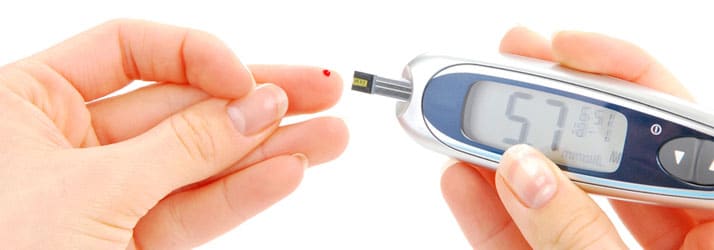Fact: Neuropathy Can Exist Without Diabetes in Traverse City

If you have unexplained symptoms like tingling sensations, muscle twitching, or digestive issues, you could be experiencing neuropathy in Traverse City.
Although it’s often associated with diabetes, neuropathy actually has many other root causes. In other words, it’s possible to experience neuropathy even if you’re not diabetic, and many people will experience it at some point in their life. The diverse range of symptoms and possible causes can make neuropathy difficult to diagnose and treat, but the good news is many holistic treatments are available.
What Is Neuropathy in Traverse City?
Neuropathy is a broad term that covers a vast array of nerve conditions. In fact, there are more than 100 kinds of neuropathy.
Some distinguishing factors between the different types of neuropathy include the number of nerves involved and the root causes. In general, there are three categories:
- Motor neuropathy affects your motor functions. Symptoms include muscle twitching, unexplained weakness, and paralysis. Foot drop, which happens when you can’t lift the front of your foot, is also associated with motor neuropathy.
- Sensory neuropathy involves mysterious and sometimes debilitating sensations like tingling, numbness, and feelings of “pins and needles.” Having trouble with balance can also be caused by sensory neuropathy.
- Autonomic neuropathy involves bodily functions. Symptoms include diarrhea, constipation, belching, fainting, heartbeat problems, and bloating. Autonomic neuropathy can also impact sexual function.
What Causes Neuropathy?
Neuropathy is commonly linked to diabetes - up to 70% of diabetics develop some form of neuropathy. However, it’s important to recognize that there are many other possible causes like the following:
Overuse injuries
Carpal tunnel syndrome is one of the most common types of neuropathy. Pressure on the median nerve in the wrist can lead to pain, numbness, and difficulty with movement. People who spend a lot of time on electronic devices - and that’s most of us these days! - are at high risk. Somewhat ironically, underuse of muscles can also lead to neuropathy, since remaining in one position for too long can damage your nerves.
Traumatic injuries
Accidents that damage the nerves, including falls, can lead to neuropathy.
Alcohol abuse
One study found that alcoholic neuropathy affects about 65% of people diagnosed with alcohol abuse disorder.
Toxin exposure
Many substances that we are exposed to in everyday life, including pesticides and heavy metals, can damage your nerves leading to neuropathy.
Vitamin imbalances
Low levels of certain vitamins, particularly vitamins B1 and B12 can lead to neuropathy. Conversely, some research suggests that excess levels of vitamin B6 can also contribute to neuropathic symptoms.
Medical conditions and medications
Neuropathy is a symptom of many medical conditions, including lupus, shingles, Guillain-Barre Syndrome, and celiac disease. Some common medications that can trigger neuropathy include:
- Drugs used to treat infections
- Blood pressure medications
- Drugs used to treat HIV/AIDs
- Medications for treating seizures
- Medications for treating autoimmune disorders
- Chemotherapy medications
- Drugs used to treat alcoholism
Some cases of neuropathy can’t be linked to a direct cause. This is called idiopathic neuropathy. Idiopathic neuropathy is surprisingly common, affecting up to eight million Americans, and it can be disruptive to quality of life. What’s more, your risk for idiopathic neuropathy increases with age.
If you’re experiencing signs of neuropathy, don’t dismiss them because you’re not a person with diabetes. Identifying possible causes is the first step to treating neuropathy and putting you back on the path to optimum health.
Give us a call to get started!
Sources
Zeng L, Alongkronrusmee D, van Rijn RM. An integrated perspective on diabetic, alcoholic, and drug-induced neuropathy, etiology, and treatment in the US. J Pain Res. 2017 Jan 20;10:219-228. doi: 10.2147/JPR.S125987. PMID: 28176937; PMCID: PMC5268333.
Kamel F, Hoppin JA. Association of pesticide exposure with neurologic dysfunction and disease. Environ Health Perspect. 2004 Jun;112(9):950-8. doi: 10.1289/ehp.7135. PMID: 15198914; PMCID: PMC1247187.
Medicine Plus, “Neuropathy secondary to drugs”
Hemminger A, Wills BK. Vitamin B6 Toxicity. [Updated 2022 Apr 14]. In: StatPearls [Internet]. Treasure Island (FL): StatPearls Publishing; 2022 Jan-. Available from: https://www.ncbi.nlm.nih.gov/books/NBK554500/
Singer MA, Vernino SA, Wolfe GI. Idiopathic neuropathy: new paradigms, new promise. J Peripher Nerv Syst. 2012 May;17 Suppl 2:43-9. doi: 10.1111/j.1529-8027.2012.00395.x. PMID: 22548623.
OFFICE HOURS
Monday
10:00am - 1:00pm
3:00pm - 6:00pm
Tuesday
7:00am - 11:00am
Wednesday
10:00am - 1:00pm
3:00pm - 6:00pm
Thursday
8:00am - 12:00pm
2:00pm - 5:00pm
Friday
Closed
Saturday
Closed
Sunday
Closed
Shift Health Center
2400 Northern Visions Dr
Traverse City, MI 49684
P: (231) 846-8897
F: (231) 360-2100




